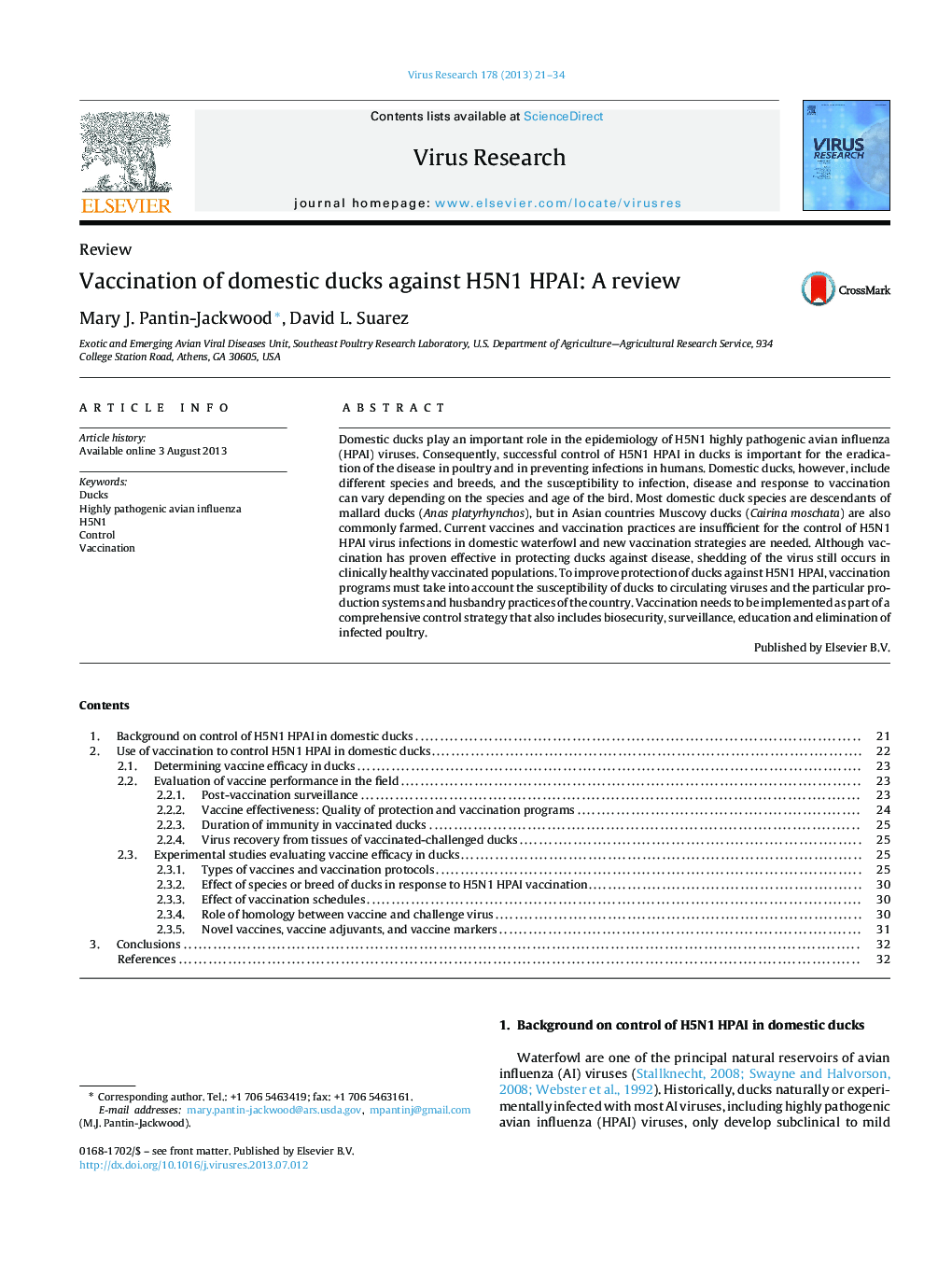| Article ID | Journal | Published Year | Pages | File Type |
|---|---|---|---|---|
| 3428538 | Virus Research | 2013 | 14 Pages |
•Domestic ducks play an important role in the epidemiology of H5N1 HPAI viruses.•Current H5N1 vaccines and vaccination practices are inadequate for domestic ducks.•Vaccination programs should account for different husbandry practices.•Species and physiological condition of the ducks can affect vaccination.
Domestic ducks play an important role in the epidemiology of H5N1 highly pathogenic avian influenza (HPAI) viruses. Consequently, successful control of H5N1 HPAI in ducks is important for the eradication of the disease in poultry and in preventing infections in humans. Domestic ducks, however, include different species and breeds, and the susceptibility to infection, disease and response to vaccination can vary depending on the species and age of the bird. Most domestic duck species are descendants of mallard ducks (Anas platyrhynchos), but in Asian countries Muscovy ducks (Cairina moschata) are also commonly farmed. Current vaccines and vaccination practices are insufficient for the control of H5N1 HPAI virus infections in domestic waterfowl and new vaccination strategies are needed. Although vaccination has proven effective in protecting ducks against disease, shedding of the virus still occurs in clinically healthy vaccinated populations. To improve protection of ducks against H5N1 HPAI, vaccination programs must take into account the susceptibility of ducks to circulating viruses and the particular production systems and husbandry practices of the country. Vaccination needs to be implemented as part of a comprehensive control strategy that also includes biosecurity, surveillance, education and elimination of infected poultry.
